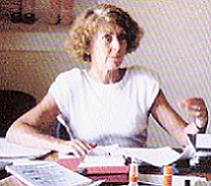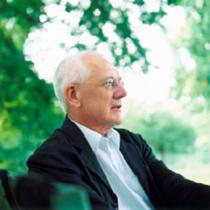|
Margret and Paul Baltes were internationally renowned
researchers in psychology who distinctively enriched their
respective disciplines and turned around psychological aging
research paradigmatically both theoretically and
methodologically.. The couple lived and worked mostly in
Germany and the U.S. They mastered dual careers at a time when
the term had not yet been coined. The Baltes’ did not confine
themselves only to science. They sought knowledge not only for
academic interests but felt the responsibility to give back to
society. Advising decision makers, alerting the public and
providing for directly applicable methods and guidelines was a
matter near to their heart. As professors they put a strong
emphasis on supporting young researchers – doctoral students
and early career scientists. They deemed intense scientific
exchange on all levels a constant source of creativity and
renewal. Margret Maria Baltes, née Labouvie, professor of
psychological gerontology, was born on March 8, 1939 in
Dillingen (Saar) and died January 28, 1999 in Berlin. Paul B.
Baltes, the ‘doyen of aging research’, internationally reputed
developmental psychologist and Max Planck Director, was born
June 18, 1939 in Saarlouis and died November 7, 2006 in
Berlin.
The University of Saar in Saarbrücken was the starting
point of both their careers. There, Margret and Paul met
during undergraduate studies of psychology and there they
received their diplomas in 1963. They got married the same
year. After graduating, Margret started to work in clinical
psychology and at the university, while Paul went on for
doctoral studies that he completed with a PhD in 1967. In his
dissertation, he discussed methodological issues that had been
raised by K. Warner Schaie. Paul met Schaie through one of his
Saarbrücken mentors, and Schaie helped him to arrange a stay
at the University of Nebraska when he was still an
undergraduate. After completing the doctorate, the contact
resulted in the offer to become Assistant Professor in West
Virginia where Schaie had moved to. Paul accepted the offer as
his wife was very enthusiastic about this opportunity. In
1968/69 the couple and their first child Boris moved to the
United States. At the University of West Virginia, Margret
soon enrolled for doctoral studies in experimental psychology.
In Germany, this would not have been a common thing for women
to do at thetime. In 1973 she graduated with a Ph.D. Two
academic careers in teaching and research developed during
their years in West Virginia, followed by stays at
Pennsylvania State University and Stanford University, then
subsequently in Germany. In 1980 the family now with two
children moved to Berlin. There Margret Baltes became
Professor of psychological gerontology at the Free University
and director of the respective research department. Her
husband became Director at the Max Planck Institute for Human
Development, one of the highest possible positions in the
German academic system. They maintained professional contacts
to their second home, as visiting professors at Stanford
University and at the Center for Advanced Studies in the
Behavioral Sciences in Palo Alto.
As famous researchers, the Baltes received numerous honors
and were often asked for their expertise in science as well as
societal and political affairs. Margret Baltes was awarded a
honorary doctor from the University of Saar and was a member
of several governmental commissions. Among other things, she
headed the governmental commission for reporting on aging and
was a member of an expert committee on aging installed by the
European Commission. She was a popular academic teacher.
Receiving the Distinguished Mentorship Award of the
Gerontological Society of America in 1994 as recognition for
this effort. Paul Baltes was active in the US Social Science
Research Council and the German-American Academic Council. He
was Vice President of the German Academy Leopoldina and member
of the Berlin-Brandenburg Academy of Sciences and of the
European Academy of Sciences. He received a honorary
doctorate from the universities of Jyväskylä, Stockholm and
Geneva as well as from the Berlin Humboldt University. He was
a foreign member of the Royal Swedish Academy and of the
American Academy of Sciences and received the German Order
Pour le mérite for Arts and Sciences and the Great Federal
Cross of Merit.
Biographical websites of Margret Baltes and Paul Baltes
Cf. Paul B. Baltes: Autobiographical Reflections.
From Developmental Methodology and Lifespan Psychology to
Gerontology. In: A History of Geropsychology in Autobiography,
ed. by James E. Birren/ Johannes J.F. Schroots, Washington,
DC: American Psychological Association, pp. 7-26.
|
|

Margret und Paul Baltes in Lund 1987

Margret Baltes in her office at the Berlin Free
University in the 1980s

Paul Baltes in Berlin 2005
|

